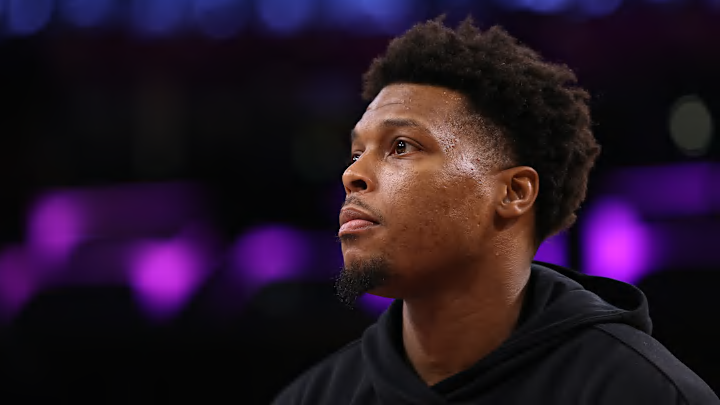The NBA trade deadline often brings a frenzy of activity. In recent years, teams have actively pursued roster improvements prior to the deadline, but the 2024 NBA trade deadline ended with a whimper. However, that doesn't mean teams are done with roster transactions.
The end of the trade deadline marks the start of the buyout market.
What is the NBA buyout season?
During buyout season, bad teams grant aging veterans the opportunity to hit the open market and join a playoff contender. In exchange, the player returns a portion of the remaining salary on their contract. Although free agents can sign with a playoff team until the final day of the regular season, only players waived by March 1 are eligible for the postseason.
While blockbuster trades often generate a ton of buzz and excitement, the buyout market has often proven to be more valuable than the trade market in the grand scheme of the season. Last year, Kevin Love helped the Miami Heat make their Finals run. The Denver Nuggets won the championship with Reggie Jackson, who continues to play a pivotal role as a rotational player this season. Even Russell Westbrook, who joined the Los Angeles Clippers last season, was acquired through a buyout.
Yet, none of those signings would be legal under the NBA's new collective bargaining agreement, which significantly restricts how the NBA's contending superteams could acquire talent.
What are the new buyout rules?
Most new restrictions won't take effect until the 2024-25 NBA season, but some changes are already in place. Any team above the first luxury tax apron cannot sign a player who was bought out mid-season unless the player's former salary was below the non-taxpayer mid-level exception.
This season, the luxury tax line is $165,294,000. There are currently eight teams whose taxable salary exceeds the first tax apron, which is $172,346,000. Those eight teams cannot sign a player who was bought out during the season if the player's former salary was above $12,405,000 — this season's non-taxpayer mid-level exception. Teams that would pass the eligibility cut-off with a signing are also forbidden from signing a waived player, whether through buyouts or standard waivers. Similarly, teams that manage to trim their payroll to below the first apron could sign a player on the buyout market.
The eight clubs with team salaries above the first tax apron are the Boston Celtics, Cleveland Cavaliers, Denver Nuggets, Golden State Warriors, Los Angeles Clippers, Miami Heat, Milwaukee Bucks and Phoenix Suns.
The rule change significantly changes the dynamics of the buyout season. Five of the top eight seeds are currently locked out of the buyout market, while Miami, Phoenix and Golden State are desirable markets in need of talent. Perhaps veterans on losing teams will remain with their current teams, or teams with salary space can push themselves into contention by becoming a hotspot destination.
